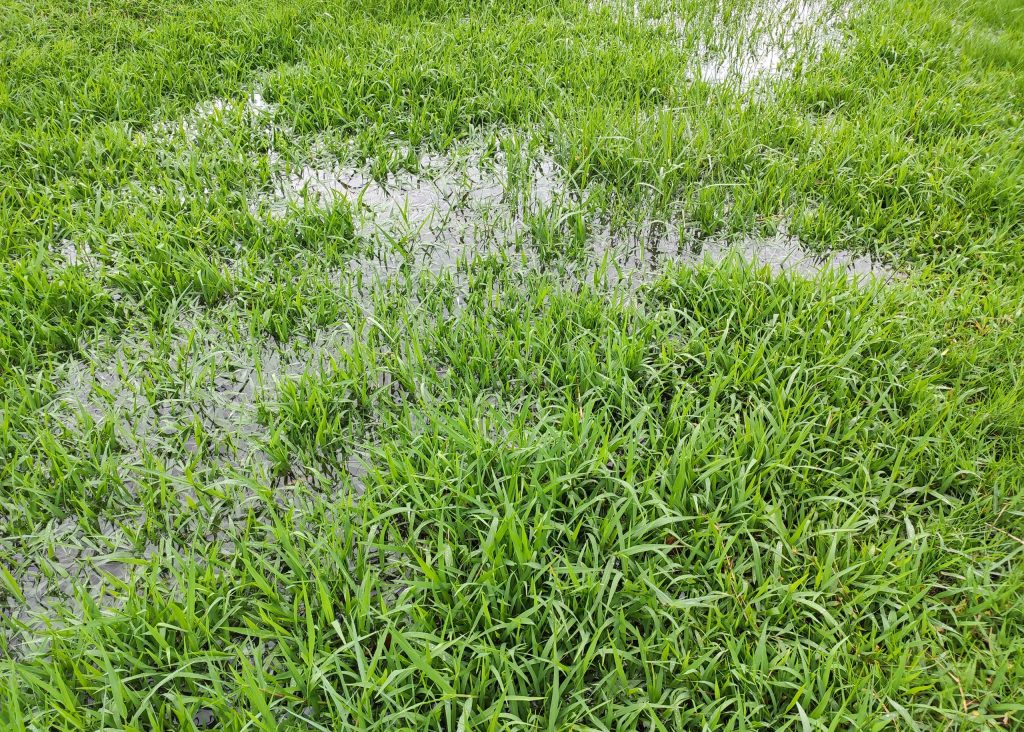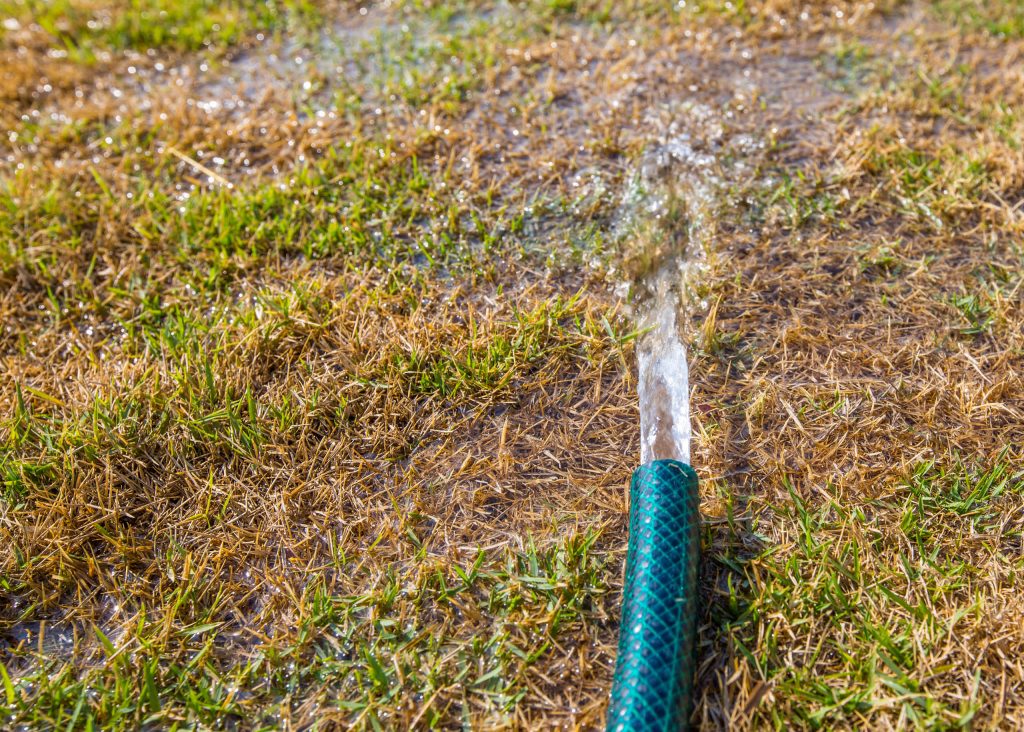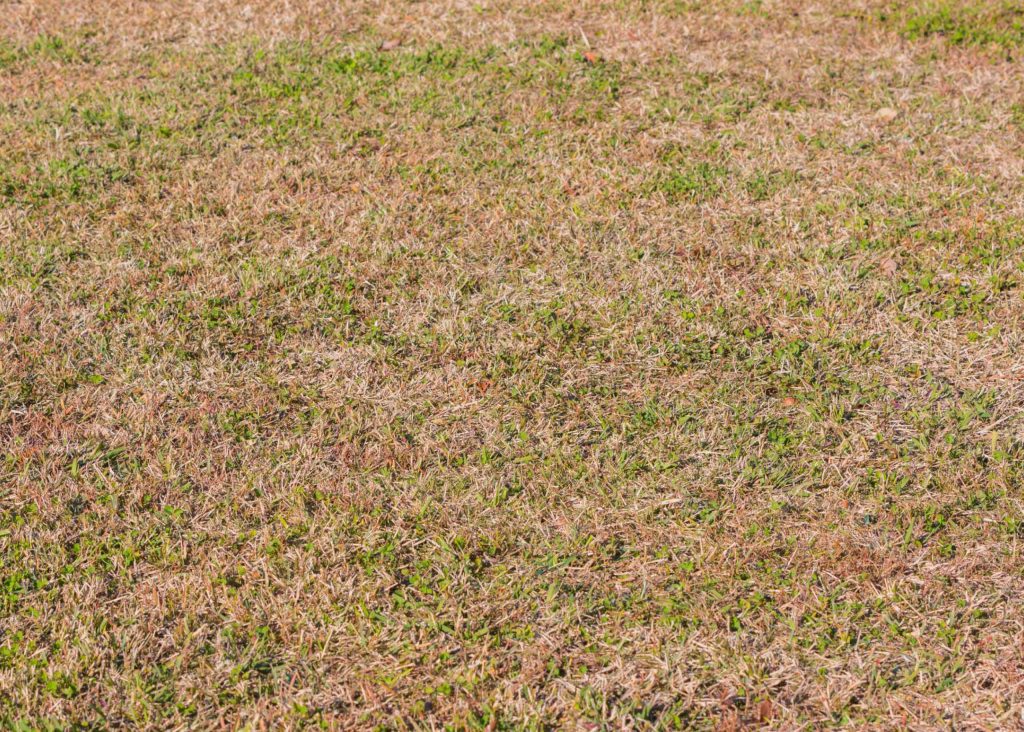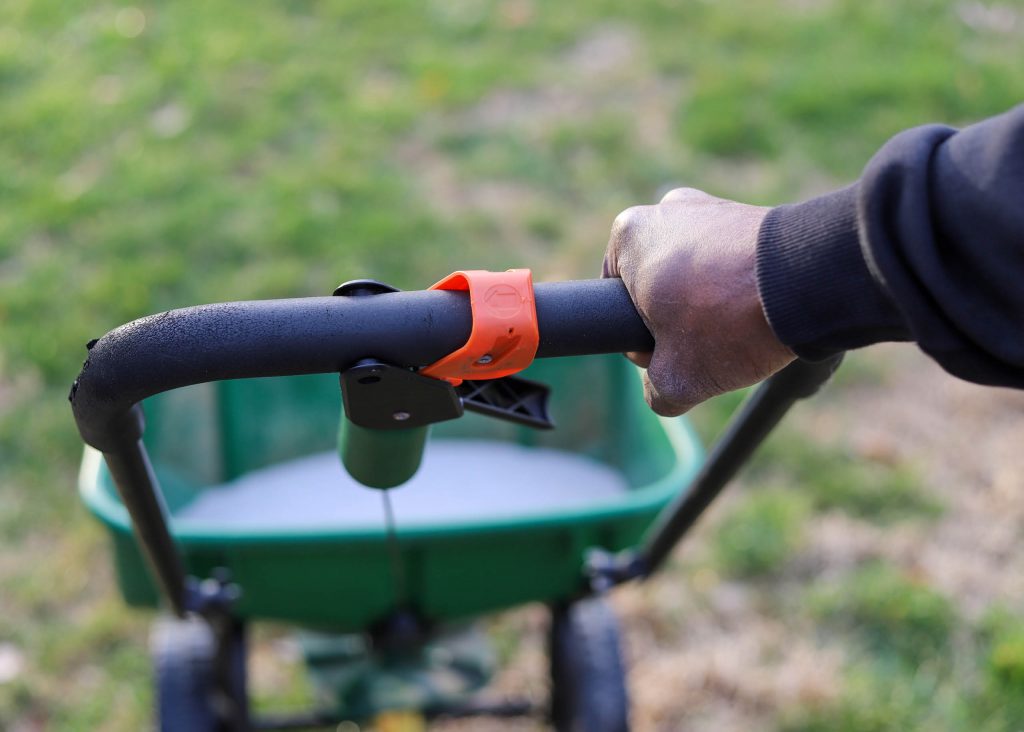Watering After Mowing – Yes or No?
Should you water your lawn after mowing? This is a question that has been asked by many homeowners. Some say irrigating a lawn after you’ve mown it is a good idea, while ...

 Your lawn needs just three things to stay healthy and green – sunshine, a balanced diet, and water – but making sure it gets the right amount of each at the right time can be tricky.
Your lawn needs just three things to stay healthy and green – sunshine, a balanced diet, and water – but making sure it gets the right amount of each at the right time can be tricky.
Depending on where you live, you might experience a lengthy wet season, periodic drought, or highly variable rainfall from month to month and year to year.
Fortunately, most of us are able to supplement natural rainfall with extra water from the garden tap when it’s needed.
And now that we’re becoming more conscious about how much water we use, soil wetting agents can help make every drop more effective.
During winter, a soil wetting agent is the perfect solution to get your lawn in the ‘right’ condition to absorb any upcoming excess water.
 In hydrophobic soils, decomposing organic matter leaves each soil particle with a waxy residue that repels water.
In hydrophobic soils, decomposing organic matter leaves each soil particle with a waxy residue that repels water.
It is more common in sandy soils, which have smaller particles than clay, as well as compacted and underwatered soils.
Testing whether the soil is hydrophobic is relatively simple. Pour a bucket of water on it and if it pools on the surface instead of being absorbed, the soil is more than likely hydrophobic.
You might also notice this phenomenon in garden pots, planters and hanging baskets, in which case the water will often run straight through.
 Soil wetting agents promote strong root development by enabling water to soak evenly into the soil rather than running off the surface, as occurs in hydrophobic soils.
Soil wetting agents promote strong root development by enabling water to soak evenly into the soil rather than running off the surface, as occurs in hydrophobic soils.
They act much like dishwashing detergent does on grease and fat in the kitchen, by reducing the surface tension of the water and allowing it to penetrate that waxy layer on the soil particle.
Allowing soil particles to hold onto water longer can reduce how often and how deeply you need to irrigate.
Soil wetting agents can also help channel nutrients into the root zone for improved turf health.
To get the best results, apply soil wetting agents in early spring, early summer, or autumn, and in the cool of the morning to avoid the hottest part of the day.
They can be applied to new or established lawns or to the soil before rolling out turf or seeding a new area of lawn.
 Soil wetting agents are available as liquids, which can often be clicked onto the end of a hose for easy application, or granules that can be spread across your lawn by hand or with a fertiliser spreader.
Soil wetting agents are available as liquids, which can often be clicked onto the end of a hose for easy application, or granules that can be spread across your lawn by hand or with a fertiliser spreader.
Most will need to be thoroughly watered in and can be reapplied every six to eight weeks, as often as needed to treat water repellent soil.
Granular products are usually made up of a carrier medium, such as cork, which holds the soil wetting agent and any other additives, such as minerals and trace elements. Once spread on your lawn, the chemicals are activated by rain or irrigation and the carrier gradually breaks down over time.
Unlike fertiliser, which can become toxic in large quantities, soil wetting agents are usually harmless. But once the soil has recovered, repeatedly applying them is a waste of time and money.
Always read the product label and follow the instructions for application and safety precautions.
Some soil wetting agents are less toxic than others, but you should always wear gloves, eye protection, boots and avoid skin contact when applying any chemicals to your lawn or garden.
Keep children and pets off your lawn until the treated area is dry and avoid mowing for 24 hours. If you’d like more tips for watering your lawn, there’s a guide here.

LawnPride HydraMaxx 2L Hose On is a liquid soil wetting agent containing a non-toxic water soluble propylene oxide-ethylene oxide block polymer that is suitable for use on Zoysia, Kikuyu, Couch and Buffalo grasses.
SHOP NOW
LawnPride HydraMaxx Hose On is also available in a 5L container.
SHOP NOWYou can browse these and other soil wetting agents in the myhomeTURF online shop.